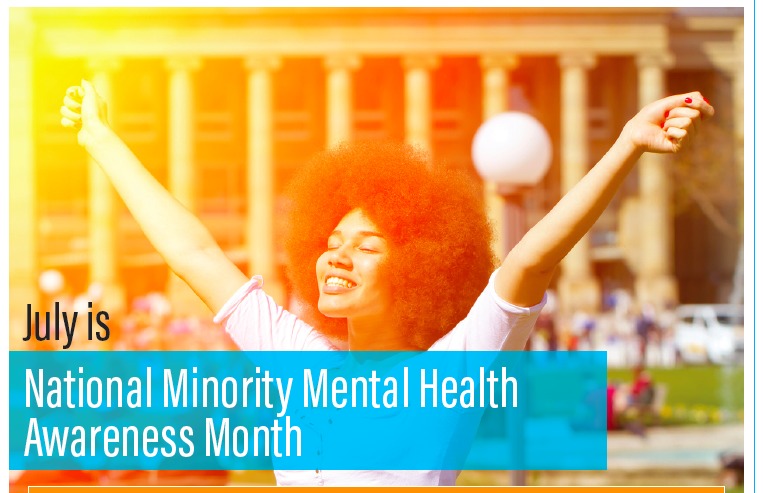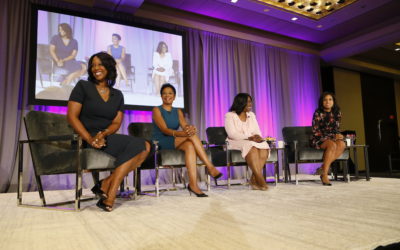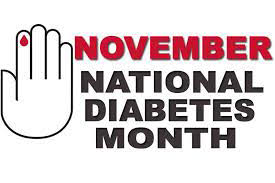
JULY IS NATIONAL MINORITY MENTAL HEALTH AWARENESS MONTH
In 2008, the US House of Representatives designated July as Bebe Moore Campbell National Minority Mental Health Awareness Month, which is now known as National Minority Mental Health Awareness Month. The resolution was sponsored by Rep. Albert Wynn [D-MD] and cosponsored by a large bipartisan group to achieve two goals:
- Improve access to mental health treatment and services and promote public awareness of mental illness.
- Name a month as the Bebe Moore Campbell National Minority Mental Health Awareness Month to enhance public awareness of mental illness and mental illness among minorities.
As part of this effort, The HHS Office of Minority Health joins partners at the federal, state, local, tribal, and territorial levels to help raise awareness about mental illness and its effects on racial and ethnic minority populations.
According to the Substance Abuse and Mental Health Services Administration (SAMHSA):
- In 2017, 41.5% of youth ages 12-17 received care for a major depressive episode, but only 35.1% of black youth and 32.7% of Hispanic youth received treatment for their condition.
- Asian American adults were less likely to use mental health services than any other racial/ethnic group.
- In 2017, 13.3% of youth ages 12-17 had at least one depressive episode, but that number was higher among American Indian and Alaska Native youth at 16.3% and among Hispanic youth at 13.8%.
- In 2017, 18.9% of adults (46.6 million people) had a mental illness. That rate was higher among people of two or more races at 28.6%, non-Hispanic whites at 20.4% and Native Hawaiian and Pacific Islanders at 19.4%.
The Agency for Healthcare Research and Quality (AHRQ) reports that “racial and ethnic minority groups in the U.S. are less likely to have access to mental health services, less likely to use community mental health services, more likely to use emergency departments, and more likely to receive lower quality care. Poor mental health care access and quality contribute to poor mental health outcomes, including suicide, among racial and ethnic minority populations.”
OTHER NEWS
2018 HOLIDAY MESSAGE FROM BWA’S PRESIDENT GWAINEVERE CATCHINGS HESS
On behalf of The Black Women’s Agenda, Inc., I wish you a safe, healthy, and joyous holiday season. This has been a busy year for BWA. Along with our National Collaborating Organizations, we were actively involved in getting out the vote and were thrilled with the pivotal role Black women played in electing candidates on the state and local level, and also running for office.
I AM THE CHANGE: THE BLACK WOMEN’S AGENDA, INC. 41ST ANNUAL SYMPOSIUM TOWN HALL & AWARDS LUNCHEON
Weeks away from one of the most hotly contested midterm elections on record, The Black Women’s Agenda, Inc. (BWA) recently hosted its 41st Annual Symposium Town Hall and Awards Luncheon, underscoring the importance of action and activism and encouraging civic engagement.
November is National Diabetes Awareness Month
November is National Diabetes Awareness Month, so now is the perfect time to educate yourself about the disease and learn what you can do to prevent type 2 diabetes or its complications. According to the National Institute of Health (NIH), you’re more likely to develop type 2 diabetes if you are 45 or older…
© 2025 The Black Women’s Agenda, Inc. All Rights Reserved. Privacy Policy








